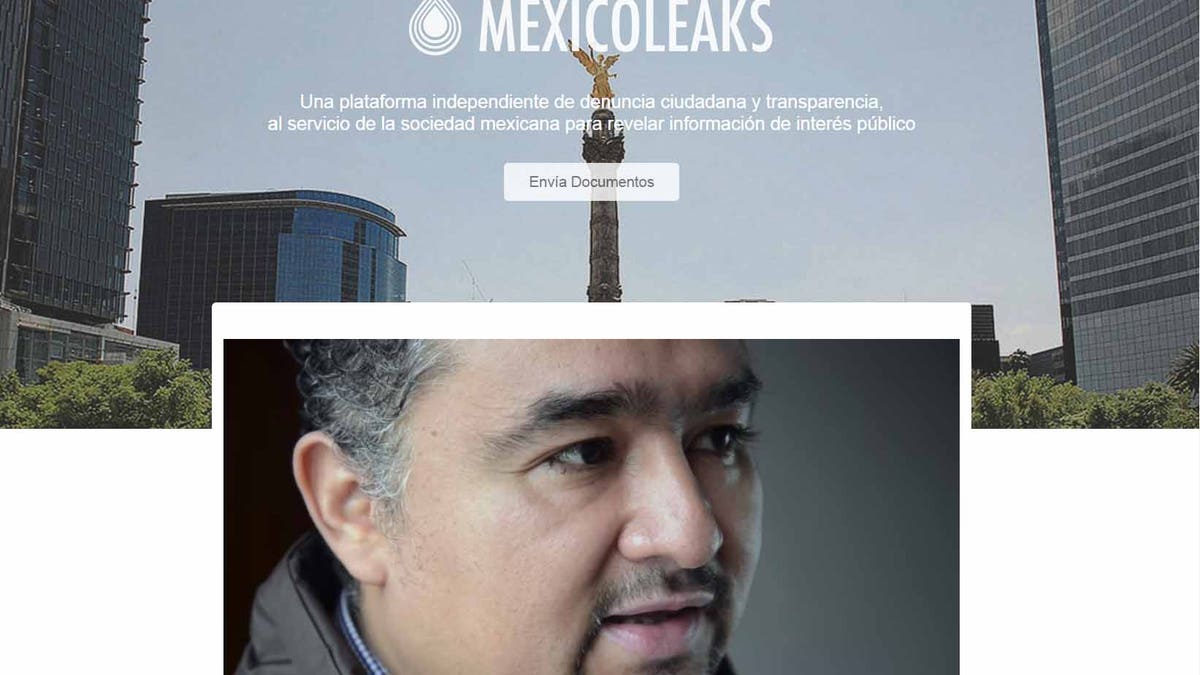
(Mexicoleaks.mx)
MEXICO CITY – In an attempt to fight a seemingly widespread culture of corruption in their country, a group of Mexican publications and civil society organizations on Tuesday launched MexicoLeaks, an online platform that allows citizens to submit, anonymously, potentially explosive documents, information, data sets and photos.
During the presentation. MexicoLeals representatives said all submissions will be thoroughly investigated and fact-checked by journalists before publication on the site. They also emphasized that the platform ensures total anonymity.
“We do not have any political agenda,” said Ignacio Rodriguez Reyna, director of Mexican publication Emeequis, one of the founding members, told reporters. “Our agenda is a journalistic one,” he added.
The effort includes two civil society organizations and six media outlets, including Mexico's weekly magazine Proceso, the website Animal Politico and the investigative unit of journalist Carmen Aristegui.
Big corruption scandals made their way back to Mexican front pages late last year, when journalists of Noticias MVS – also a member of MexicoLeaks – revealed that president Enrique Peña Nieto’s $7 million family home was under the name of contractor Juan Armando Hinojosa. This contractor, a long-time acquaintance of the president, is also the owner of Grupo Higa, a construction firm that was awarded billions of dollars in contracts in the State of Mexico while Peña Nieto was governor (2005-2011).
A few weeks after that, a Wall Street Journal investigation casted light on another client of Hinojosa: Mexico’s finance ministry Luis Videgaray, who bought a house in October 2012 with the help of a low-interest Grupo Higa loan.
Peña Nieto has vowed more transparency and appointed a new secretary of public administration to investigate these acquisitions.
Inspired by the likes of Julian Assange’s WikiLeaks and Edward Snowden, MexicoLeaks will encourage this recent upswing in local and foreign investigative reporting. But conflicts of interest and collusion between politicians and businessmen in the country are not the only wrongdoings its creators are hoping to shed light on.
Impunity among the ranks of Mexico’s military and police officers has also been at the center of two major scandals recently. First the mass killing of 22 young people in Tlatlaya last summer, for which six members of the military are now being charged.
Secondly, the abduction and killing of 43 students in the town of Iguala, in the western state of Guerrero, one of the country’s poorest regions.
“Photos and evidence could also have helped in recent events involving military officials,” explains Irving Huerta, of Noticias MVS, “to know – for instance – who in the government was aware and who was not.”
MexicoLeaks is a first for Mexican journalists, whom according to Huerta are not accustomed to cooperate across different brands. And unlike other countries, Mexico doesn’t have a lot of experience using privacy tools such as encrypted messages – an extra layer of protection offered to MexicoLeaks users.
“This is one more tool for us journalists to use," Huerta said, "but what matters most here is not us journalists, it's what we hope this will bring to the Mexican people," he said.
